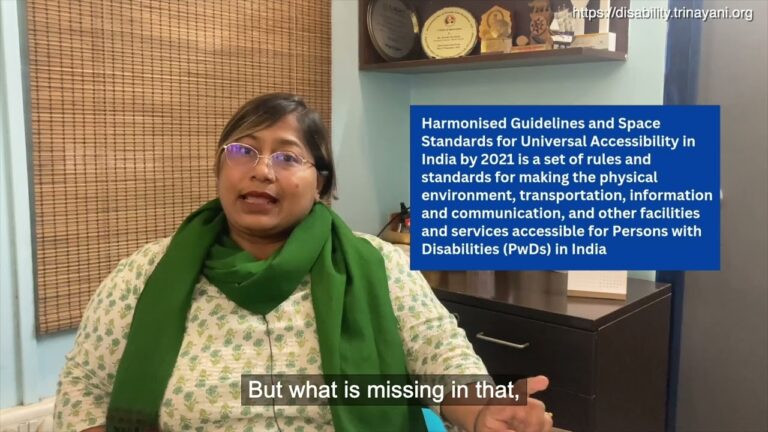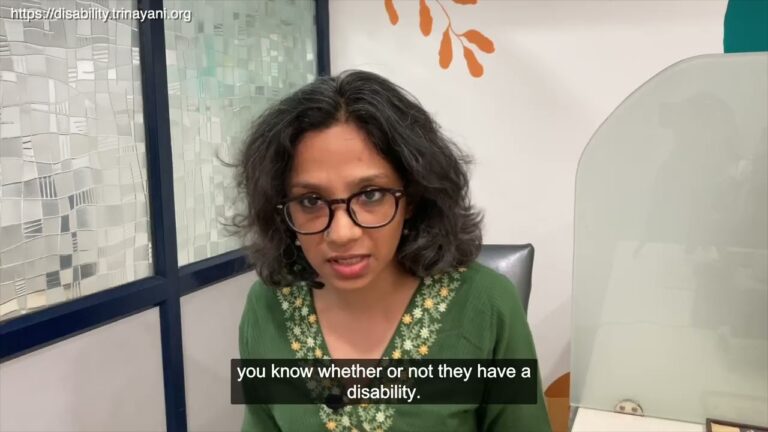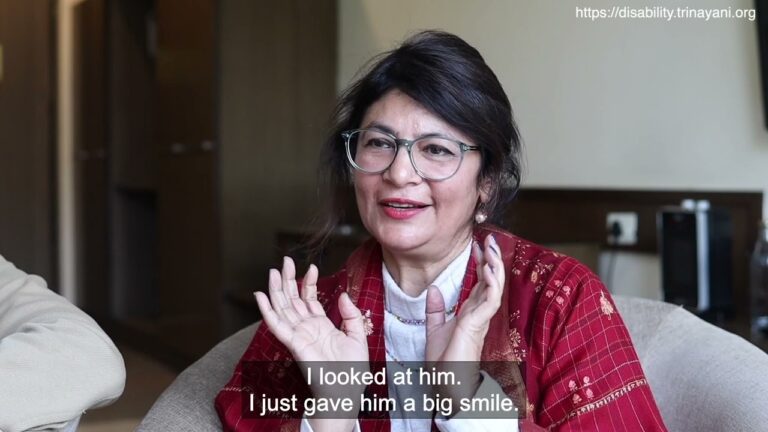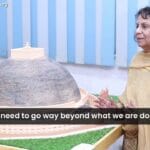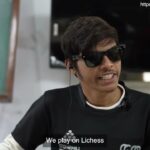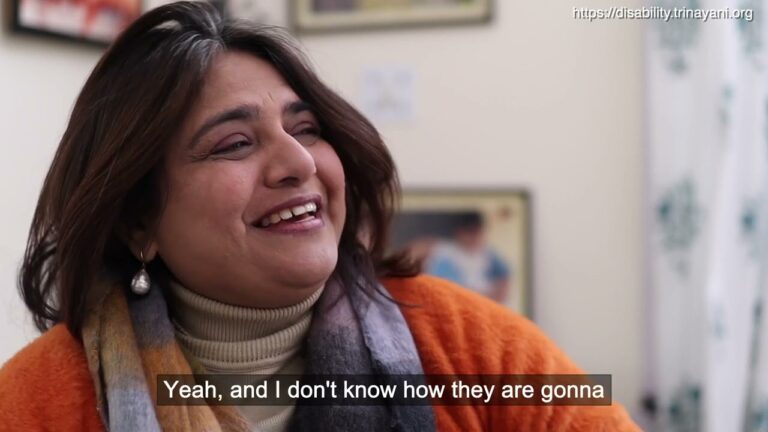Parenting without sight
Meet Dr. Smriti Singh, an associate professor at Delhi University’s Maitreyi College, as she shares her perspective on caregiving, highlighting the importance of compassion, empathy, and positivity in raising her children. As visually challenged parents, she and her husband confront societal stereotypes and the lack of understanding surrounding disability, emphasizing the need for social acceptance and inclusion.
Candidly, Snehil, her son, reflects on his experiences as Skyla’s older brother, discussing the joys and challenges of their sibling relationship. Skyla herself shares her feelings of otherness and the importance of societal acceptance for people with disabilities.
Join Dr. Singh as she advocates for equal opportunities and social accessibility for all.
Hi I’m Dr Smriti Singh, Associate professor of Delhi university, Maitreye College and these are my two darling angels, Skyla, she’s younger one and Snehil, he’s naughty, elder one. So you can meet them. And they are cute to me, they are my life.
Skyla, unfortunately is suffering with Congenital Pseudarthrosis of the Tibia CPT.
She’s on wheelchair. Ah, so this is how it is. You could see her. And whatever, they are my life.
Care giving means to me a lot. It’s like bringing up children with compassion, with empathy, with positivity.
Being a visually challenged parents, me and my husband, it has been difficult for us because we have to face.
We were already facing, facing stereotype complexions and now we have to face more because society doesn’t accept and society associates all the disability together without understanding cause of it.
Whatever, social stigma we have to fight, we have to fight with all the challenges and at the same time, accessibility problem, we have to fight.
So this is what is there. This is what is challenging us every day, every time, but we face it.
Um, first of all, she’s lovely, darling of mine.
But, you know, friends are difficult to understand.
It’s difficult to make always, though, she has like, she has all the facility in the school.
But there are many places where she doesn’t have facility.
She cannot play with many friends.
Games are not designed in schools, uh, in that way that she can also participate equally.
She cannot, uh many places she cannot go.
Many a times she’s is left alone in the class.
So that feeling of otherness is always there, that feeling of us, still, it is missing in the society.
*
It’s been a wonderful experience taking care of my sister. I’ve had a lot of fun with her.
Sometimes we fight. Though, we resolve the fight later on.
Like once I fought with her, but then the next day we became friends again.
So and so like that, like a normal sibling relationship.
Though sometimes it gets difficult to take care of her. And at times, I had to make friends for her.
Actually, once there was a boy in her class, that who used to bully her by moving her wheelchair left and right like that.
So I had to go to her class and resolve the situation with the boy.
*
Well, sometimes I feel jealous about my brother because he can walk and his friends don’t make fun of him, sometimes.
So I actually, a few years ago I had some friends. I don’t think they were my real friends though, because when I got on a wheelchair, they stopped being friends with me.
They started saying that, that if we can’t play these games, then why should you play these?
*
We working women have to have help, otherwise our house will dismantle altogether.
So Rekha is my support system.
She helps me out when I’m not there, to take care of my kids, to look after them, to bring them many a times back from the school, feed them, take care of them.
So that way, so we have to have help, otherwise life doesn’t go and we have to accept their help and be grateful to God and to them that they are here, to help us out.
I want that both of uh, both are darling of mine, so both should be given equally opportunity…equal opportunity to them.
Both should be, like she should be given, she should be having friends and all those things, equal life like my son can access.
And many a times, my son also gets like, there is no caregiver, so he has to become caregiver.
So, as a caregiver, I want space in the society for disabled, where accessibility is there.
Physical accessibility should be there, it must be there. But it is important, social accessibility is more important, like you should understand each other.
You should have empathy for each other and people should accept each other the way we are.
And that would be the point of change.
If we can accept each other the way we are, then only we can think of changing society, then only we can think of anything positive in the society.
And this is what I want.
Of course physical accessibility is required but social ac, ac, uh accessibility cannot be substituted with physical accessibility.
adaptive play, assistive devices, bullying prevention, caregiver support, congenital pseudarthrosis of tibia, CPT, disability awareness, disability rights, disabled parenting, empathy, equal opportunity, inclusive education, inclusive society, physical accessibility, sibling relationships, social acceptance, social inclusion, social stigma, Visual Impairment, visually challenged parents, wheelchair accessibility
Dive Deeper: More on Disability
Learn about the most common inquiries surrounding disability, education, legislation, accessibility, employment and other sectors related to disability.


